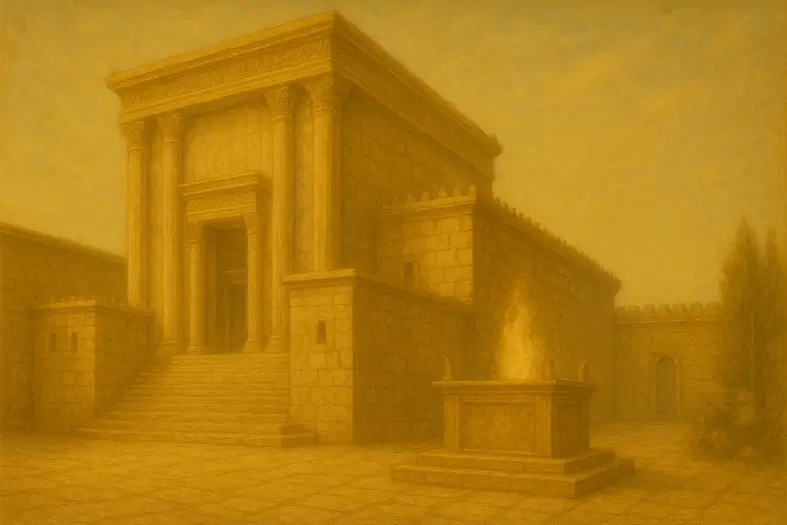


It is forbidden to sprinkle the blood of blemished animals upon the altar.
This mitzvah prohibits sprinkling the blood of animals with blemishes onto the altar in the Temple. Each stage of the sacrificial service is governed by its own sanctity, and sprinkling the blood — a central act of korbanot — must not be performed with animals deemed unfit.
Rambam clarifies that there are distinct prohibitions for consecrating blemished animals (337), slaughtering them (338), sprinkling their blood (339), and burning their fats (340). Sefer HaChinuch explains that sprinkling blemished blood invalidates the service and diminishes the awe of Hashem’s worship.
The Talmud teaches that sprinkling blood is the primary act through which atonement is achieved, and thus, performing it with blemished offerings undermines the essence of korbanot. Ramban emphasizes that blemishes symbolize imperfection, and Hashem’s service demands wholeness at every step.
Commentary & Classical Explanation:


Represents the concept of spiritual intentionality, purity, and sanctity—set apart for a higher purpose.
Concerns the Beit HaMikdash, korbanot (offerings), and priestly service.
Signifies awe and reverence toward Hashem—living with awareness of His greatness and presence.
Mitzvot that uphold fairness, honesty, and moral responsibility. Justice is kindness structured — ensuring that society reflects G-d’s order through truth, equity, and accountability.
Mitzvot that define and deepen the relationship between a person and their Creator. These include commandments involving belief, prayer, Shabbat, festivals, sacrifices, and personal holiness — expressions of devotion rooted in divine connection.

Dive into mitzvos, prayer, and Torah study—each section curated to help you learn, reflect, and live with intention. New insights are added regularly, creating an evolving space for spiritual growth.

Explore the 613 mitzvos and uncover the meaning behind each one. Discover practical ways to integrate them into your daily life with insights, sources, and guided reflection.

Learn the structure, depth, and spiritual intent behind Jewish prayer. Dive into morning blessings, Shema, Amidah, and more—with tools to enrich your daily connection.

Each week’s parsha offers timeless wisdom and modern relevance. Explore summaries, key themes, and mitzvah connections to deepen your understanding of the Torah cycle.